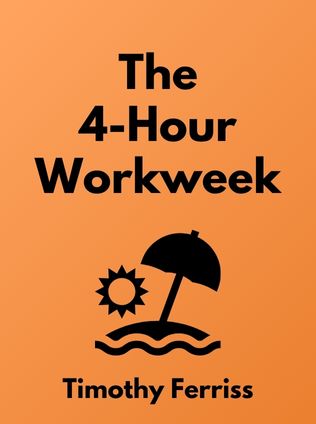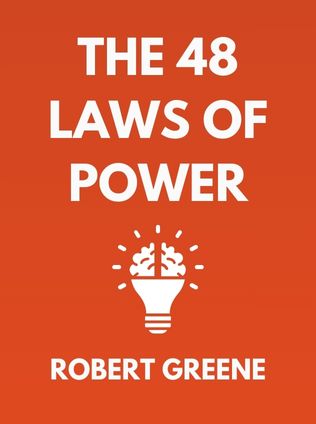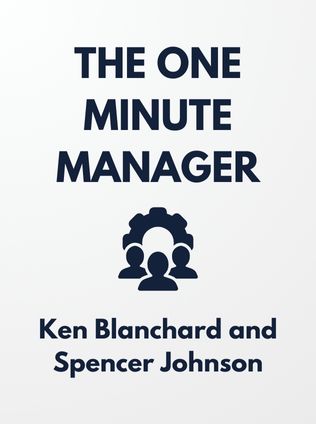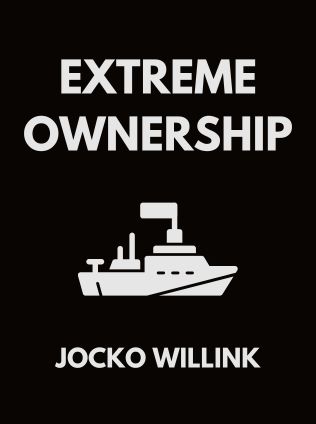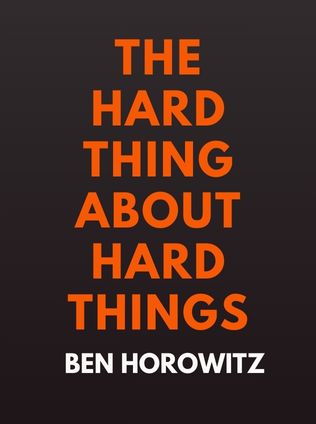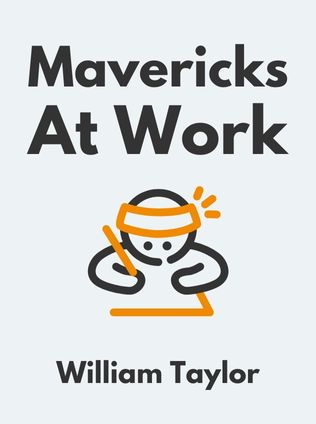
Mavericks at Work
Why the Most Original Minds in Business Win
By William Taylor,
Published 01/2008
About the Author
William C. Taylor is a co-founder and founding editor of Fast Company magazine. He writes the "Under New Management" column for The New York Times and has published essays and interviews with CEOs in the Harvard Business Review.
Polly LaBarre was a senior editor of Fast Company for eight years, where she wrote articles on creativity, personal success, and strategy. She also co-hosted the magazine's Real Time conferences.
Main Idea
Mavericks at Work: Why the Most Original Minds in Business Win explores the revolutionary strategies of unconventional CEOs who are leading a bottom-up revolution in the business world. Taylor and LaBarre argue that in today's rapidly changing market, traditional business strategies are insufficient. Instead, they advocate for a complete rethinking of how companies operate, from strategy and marketing to human resources and workplace environment. The key to success is embracing unorthodox approaches and turning your company into a cause.
Table of Contents
- Introduction: Corporate Rebels with a Cause
- Rethinking Your Competition
- Creating a Killer Strategy
- Reinventing Innovation
- Getting Down with Your Customers
- Factoring in the People Equation
- Conclusion: The Future of Maverick Leadership
Corporate Rebels with a Cause
In the introduction, the authors immediately immerse readers in the world of companies masterminded by CEOs who defy conventional business wisdom. These maverick leaders operate on a different plane, rethinking the entire logic of how business gets done. Taylor and LaBarre assert that the only way to succeed in the modern business landscape is to embrace an unorthodox approach. As they put it, "the more unorthodox your approach, the better."
"To survive in this strange new dimension, you will have to forget everything you've ever learned about how to create or run a company." - Taylor and LaBarre
This introductory premise sets the stage for the rest of the book, where the authors delve into the specifics of how these maverick leaders are transforming industries and redefining success. By operating on principles that often contradict conventional business wisdom, these leaders are not only surviving but thriving in a competitive landscape.
Rethinking Your Competition
The first major idea presented in the book is the necessity of rethinking your competition. Traditional strategies based on outmaneuvering known competitors are outdated. In today's world, the most significant threats often come from unexpected sources, even outside your industry. The authors emphasize that companies need to turn their strategy into advocacy and become crusaders for a big idea.
"The company with the smartest customers wins." - Taylor and LaBarre
Southwest Airlines exemplifies this approach by democratizing the skies with a low-cost, fun onboard experience, fundamentally disrupting the airline industry.
Another example is Arkadi Kuhlmann, president and CEO of ING Direct USA, who challenged traditional banking norms by encouraging savings rather than spending, providing simple products with no fees, and offering higher interest rates due to the absence of physical branches.
The notion of redefining competition extends to the idea of viewing your company as a cause. For Southwest Airlines, this meant making air travel accessible to the masses. For ING Direct USA, it meant promoting financial responsibility and savings. This approach not only differentiates these companies from their competitors but also creates a loyal customer base that identifies with the company's mission.
To further illustrate the concept, the authors highlight several companies that have redefined their industries through innovative strategies:
- Cirque du Soleil: By blending circus arts with theatrical flair, Cirque du Soleil created a unique entertainment experience that appealed to a broader audience and distinguished itself from traditional circuses.
- Whole Foods Market: Emphasizing organic and natural products, Whole Foods Market tapped into the growing health-conscious consumer base, setting itself apart from conventional grocery stores.
- IDEO: This design and innovation consultancy firm revolutionized product development by focusing on human-centered design, collaborating closely with clients to create breakthrough products and services.
These examples underscore the importance of thinking beyond traditional industry boundaries and embracing a broader vision for what your company can achieve. By redefining competition and aligning your business with a compelling cause, you can create a powerful, enduring brand that resonates with customers and employees alike.
Creating a Killer Strategy
Developing a distinctive and disruptive sense of purpose is crucial. The authors argue that companies must have a strategy that is as provocative as it is enduring, as disruptive as it is distinctive. This involves adopting a vocabulary of competition unique to your industry and rejecting short-term opportunities that detract from long-term goals.
"You have to become an industry bad boy." - Taylor and LaBarre
Commerce Bank's "One to Say Yes, Two to Say No" rule is a perfect illustration of a unique competitive vocabulary. The rule allows any employee to say yes to a customer but requires checking with a boss before saying no, ensuring a customer-friendly approach.
Another key aspect of creating a killer strategy is the willingness to reject opportunities that do not align with your long-term mission. Scott Bedbury's "Spandex Rule of Branding" underscores the importance of staying true to your brand identity and not diluting it by chasing short-term gains.
Sign up for FREE and get access to 1,400+ books summaries.
You May Also Like
The Lean Startup
How Today's Entrepreneurs Use Continuous Innovation to Create Radically Successful Businesses
By Eric RiesWho Moved My Cheese?
An Amazing Way to Deal with Change in Your Work and in Your Life
By Spencer Johnson, M.D.Make Your Bed
Little Things That Can Change Your Life...And Maybe the World
By William H. McRavenThe Ride of a Lifetime
Lessons Learned from 15 Years as CEO of the Walt Disney Company
By Robert IgerThe Hard Thing About Hard Things
Building a Business When There Are No Easy Answers
By Ben Horowitz







